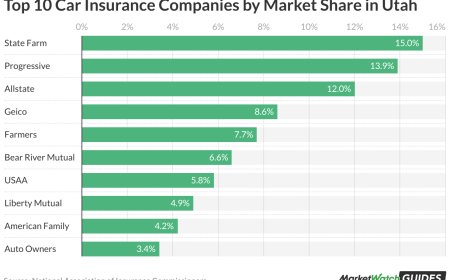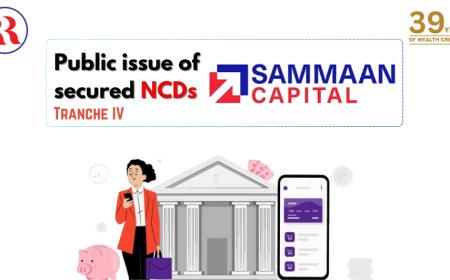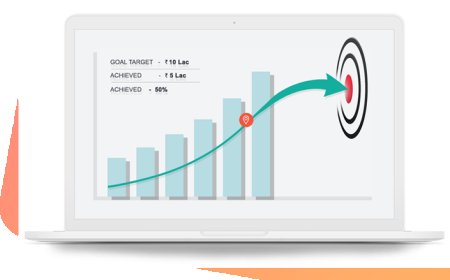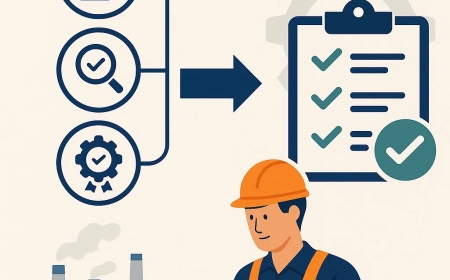What Makes a Generative AI Solution for HR Essential for Modern Enterprises?
Discover why generative AI solutions are becoming essential in HR for modern enterprises—streamlining recruitment, enhancing employee engagement, and driving strategic decision-making.

The landscape of Human Resources (HR) is undergoing a rapid transformation. As organizations scale and navigate the complexities of a digitally driven world, traditional HR practices are proving inadequate to meet the evolving demands of the workforce. Amid this paradigm shift, Generative AI is emerging as a pivotal technology in reshaping how HR functions are conceptualized and executed.
From automating routine tasks to enhancing decision-making and employee engagement, a Generative AI solution for HR is no longer a futuristic conceptit's a strategic necessity for modern enterprises. This blog explores why generative AI is indispensable in todays HR ecosystem, what it brings to the table, and how it is redefining the future of work.
What Is Generative AI in HR?
Generative AI refers to AI models capable of creating new content, insights, or responses based on learned data patterns. In an HR context, this means generating personalized job descriptions, crafting candidate emails, providing interview questions, or even simulating real-life HR scenarios for training purposes.
Generative AI tools such as ChatGPT, Claude, or enterprise-specific LLMs (Large Language Models) can be trained on organizational data to offer context-specific insights and outputs that are aligned with business goals and HR strategies.
Key Use Cases of Generative AI in HR
Heres a closer look at how generative AI is transforming core HR functions:
a. Talent Acquisition & Recruitment
-
Automated Job Descriptions: AI can generate role-specific job postings tailored to market trends and company tone.
-
Resume Screening: AI quickly sifts through thousands of resumes, identifying the most relevant candidates based on predefined criteria.
-
Interview Preparation: Create personalized interview scripts, candidate assessments, and even simulate interview conversations.
b. Employee Onboarding
-
AI-Generated Training Material: Customize onboarding documents and training modules for new hires based on role, location, or department.
-
Virtual Assistants: Chatbots powered by generative AI can answer onboarding queries 24/7, providing real-time support.
c. Employee Engagement & Communication
-
Sentiment Analysis: AI tools can analyze employee feedback, pulse surveys, and open-ended responses to detect morale trends.
-
Hyper-Personalized Communication: Automatically generate targeted newsletters, performance feedback, or recognition messages.
d. Performance Management
-
Dynamic Goal Setting: AI can help managers and employees define OKRs (Objectives and Key Results) aligned with evolving business needs.
-
Review Summaries: Automate the generation of performance summaries based on peer reviews, project updates, and feedback loops.
e. Learning and Development (L&D)
-
Customized Learning Paths: Based on skills gap analysis and career goals, generative AI can recommend and even create tailored learning content.
-
Real-Time Microlearning: Deliver bite-sized training modules generated from recent business updates or industry trends.
Strategic Benefits of a Generative AI Solution for HR
a. Operational Efficiency
Generative AI reduces the manual workload for HR teams by automating content creation, data analysis, and communicationsfreeing up valuable time for strategic work.
b. Cost Savings
While implementing AI incurs initial investments, the long-term ROI is significant. AI minimizes human errors, reduces recruitment costs, and improves retention by enhancing employee experiences.
c. Enhanced Decision-Making
With the power to analyze large datasets in real-time, AI provides actionable insights for workforce planning, compensation strategies, and employee development.
d. Improved Employee Experience
Employees now expect consumer-grade experiences from workplace tools. AI-powered HR platforms deliver instant answers, personalized guidance, and intuitive interactions.
e. Scalability and Flexibility
Whether youre scaling from 500 to 5,000 employees or expanding across geographies, AI solutions adapt quickly to organizational growth without the need for proportional increases in HR headcount.
Ethical Considerations and Challenges
Despite its transformative potential, deploying a generative AI solution for HR comes with caveats:
-
Bias and Fairness: AI models must be audited regularly to prevent bias in hiring or evaluations.
-
Transparency: Employees should be informed when AI is used in decision-making processes.
-
Privacy & Data Security: Handling sensitive employee data demands stringent compliance with regulations like GDPR, HIPAA, and others.
-
Human Oversight: AI should augment, not replace, human judgmentespecially in sensitive HR areas like conflict resolution and terminations.
Integration with Existing HR Tech Stack
For maximum impact, generative AI tools should integrate seamlessly with existing HR systems such as:
-
Applicant Tracking Systems (ATS)
-
Human Capital Management (HCM) Platforms
-
Learning Management Systems (LMS)
-
Employee Experience Platforms
APIs and AI middleware solutions can ensure data flows smoothly between systems while maintaining integrity and context.
The Future Outlook
The role of generative AI in HR is only set to grow. Heres what we can expect:
-
AI Co-pilots for HR Professionals: Assist with day-to-day HR functions in real time.
-
Voice-Enabled HR Chatbots: Voice AI will take over mundane HR inquiries, freeing up more strategic bandwidth.
-
Predictive & Prescriptive HR: Moving from reporting what happened to suggesting what should be done next.
-
AI-Driven Organizational Design: Dynamically model workforce structures based on business needs and employee strengths.
Forward-looking enterprises are already investing in these capabilities to gain a competitive edge.
Conclusion
In a world where agility, personalization, and efficiency define success, traditional HR processes simply cannot keep pace. A Generative AI Solution for HR equips enterprises with the tools to meet modern demands, streamline operations, and elevate the employee experience at every touchpoint.
From recruitment to retention, training to performance, generative AI is not just enhancing HRit is reinventing it. Enterprises that embrace this transformation today will lead the future of work tomorrow.



































